This guide will help you understand cremation costs in Pennsylvania. We have included a price comparison for cremation services across major cities, practical tips for saving money, and essential information for arranging a cremation service in Pennsylvania.
As more families turn to direct cremation in Pennsylvania as a more affordable and flexible alternative, it’s important to explore the various options available. Deciding on the right cremation service for your needs is a crucial step in the planning process

First, the primary reason you may visit this guide is why more people are selecting cremation services. Cremation can save you thousands of dollars in funeral expenses.
What does a cremation cost?
Below is a sample of direct cremation prices from the major cities in Pennsylvania to help you better understand cremation costs near you.
| CITY | AVERAGE PRICE | BEST PRICE (DFS) | CALL NOW (DFS) |
|---|---|---|---|
| Allentown Bethlehem | $2,855 | $1,495 | (610) 273-8022 |
| Erie | $2,359 | $1,395 | (814) 208-5272 |
| Harrisburg | $2,625 | $1,395 | (717) 207-8252 |
| Philadelphia | $2,421 | $1,195 | (215) 310-0777 |
| Pittsburg | $2,177 | $695 | (412) 203-5809 |
| Scranton | $2,339 | $1,495 | (570) 225-9080 |
Wanting to know what cremation costs has become a key online search term. The cost for cremation can vary depending on the funeral home providing the services and the type of cremation service option selected.
According to funeral price surveys in Pennsylvania, the average cost of a full-service cremation is $6,515, and the average cost for a direct cremation is $2,456*. These are ‘average’ prices; you can make cremation arrangements for less than this.
DFS Memorials PA is a network of affordable cremation service providers. All serve their local communities, offering a low-cost direct cremation service. As you can see from the table above, DFS Memorials locations offer exceptional value cremation service packages compared to the local ‘average’ cost.
Now, we will explore the different types of cremation services available and why a simple direct cremation is the cheapest option.
What are the different options for a cremation service?
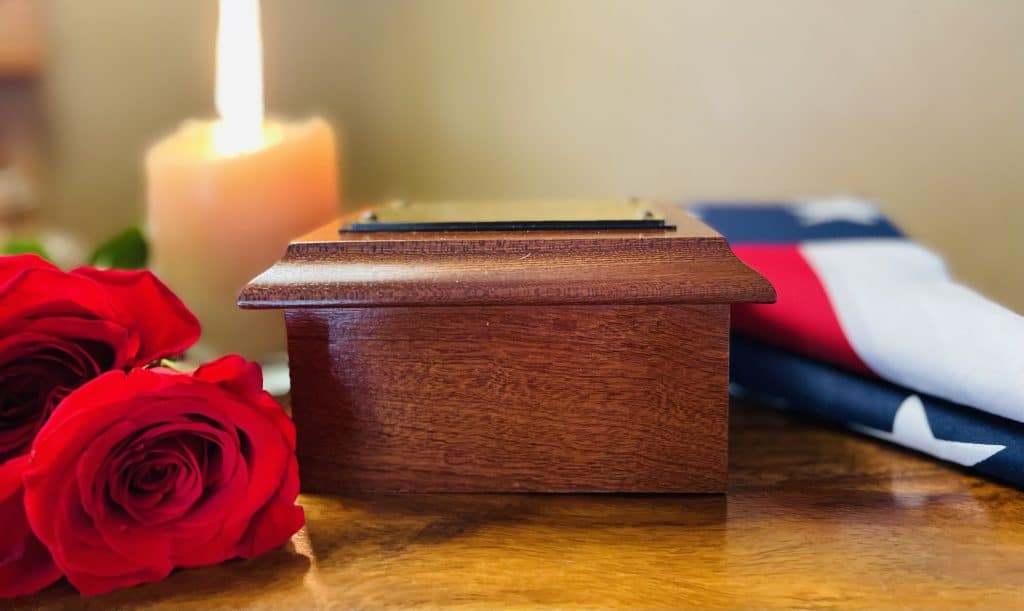
Cremation offers more versatility in how and where we can memorialize. Choosing a cremation service can remove the need for expensive funeral expenses, such as a burial vault, cemetery plot, and casket.
You can choose to have a Full Cremation Service, which is similar to a full-service funeral, except the deceased is cremated following the service.
Or opt to conduct a Cremation Memorial, whereby the crematory first performs the cremation, and you can hold a memorial service once you have the cremation ashes.
Several other options offer a short visitation or viewing prior to the cremation. This can be more of a select, private ‘goodbye’ for family and close friends who do not want to hold a full funeral ceremony before cremation.
Finally, you can select to have a Direct Cremation. This is where the funeral home provides minimal services. They complete all legally required to conduct a cremation, cremate the deceased, and return the cremated remains to the next of kin.
Visit our Ultimate Guide to Cremation if you want to read more about cremation services.
Why is direct cremation such a low-cost option?
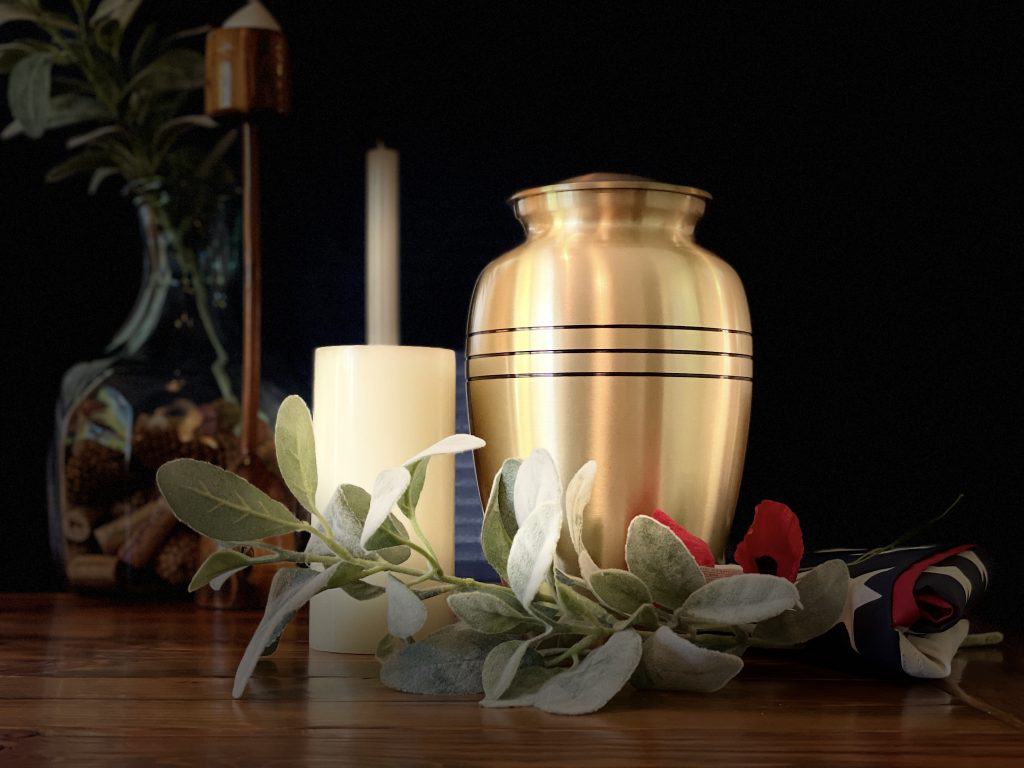
A direct cremation is a basic service package. Because it requires reduced professional service fees, it can be offered at a lower cost. Some funeral or cremation providers even request you complete online arrangement forms to streamline the process and reduce staff arrangement time.
It means you CAN arrange everything without even needing to visit a funeral home.
Do make a point to check what IS included with a direct cremation service package. Unfortunately, not all funeral homes include all third-party fees, and what seems a low price can have extra charges added.

Are there additional charges to consider with a direct cremation package?
Most cremation service providers offer a package price that includes everything with the exception of third-party fees payable to the county for death certificates, cremation permits, and any other legal documentation required.
The cremation is conducted using a basic cremation container, and the cremated remains are returned in a temporary urn. A selection of cremation urns may be offered to add to your cremation package at an extra charge.
Some cremation providers offer a complete service package that may include a copy of the death certificate and the cremation permit fee.
It is wise to check EXACTLY what is included in any listed cremation package service charge.
You should also note that if the deceased was overweight (over 250 pounds), there will likely be an extra charge for a barometric cremation. Similarly, if a pacemaker needs to be removed, there will be a small fee.
What are the legal requirements for a cremation disposition to proceed?

The legal next of kin must all sign the Cremation Authorization Form to consent. If several family members are legally responsible (for example, siblings), all must agree and sign the authorization for cremation.
The funeral director can then obtain the Permit to Cremate. In Pennsylvania, there is usually a mandatory wait period of 48-72 hours after the death before a cremation can be performed.
Although, it usually takes 3 – 7 days to complete all the paperwork and schedule the cremation.
How long does a cremation take? What is the process for cremation?
The cremation process takes between 2 to 5 hours, depending on the grade of the equipment, the time of day, and the weight of the deceased. Newer retorts perform faster, and once the retort has heated for the first cremation, subsequent cases will cremate faster.
The time it takes to schedule a cremation can also depend on the number of cases a provider handles, whether they have their own crematory, and how many retorts they operate.
The average time it usually takes from the funeral home collecting the deceased to the cremated remains being returned to the family is seven to ten days.
This allows for the legal paperwork and permits to be issued, the cremation to be performed, and the remains to be prepared for collection.
What is the best option for setting up an affordable cremation plan?
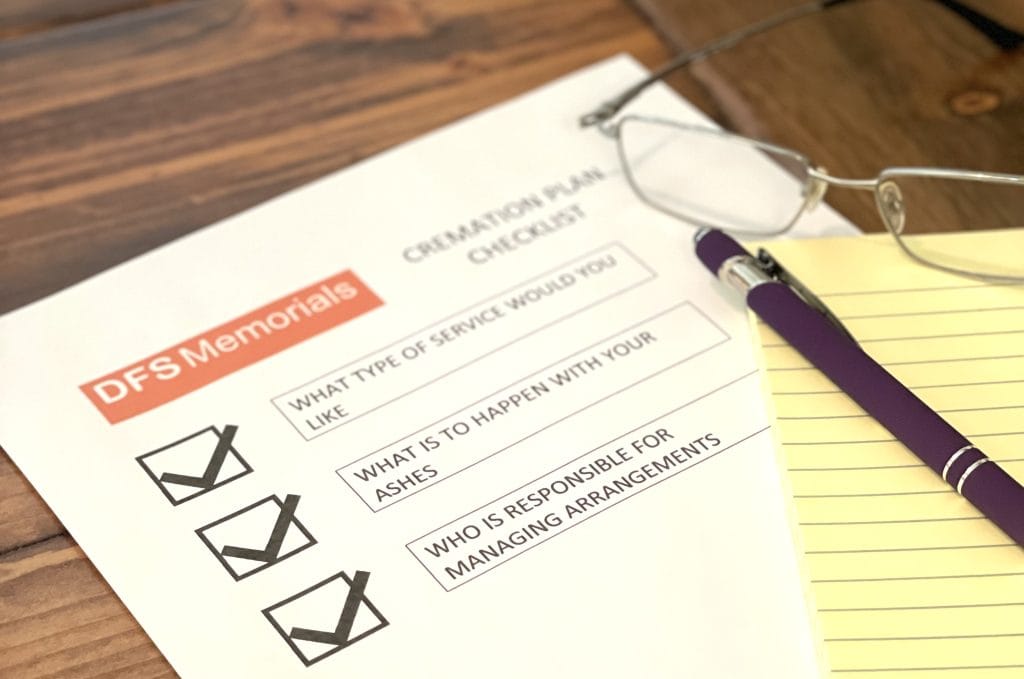
You have two options. You can formally set up a cremation plan with a funeral service provider and deposit the funds. Or you can choose to pre-plan without paying by documenting your wishes, signing off a cremation authorization, and securing the funds in a Payable-on-death bank account (P.O.D.).
You can read more here about Setting up Your Own Cremation Plan.
How do I best plan if my loved one is in Hospice Care?
An anticipated passing is referred to as an “imminent” death, and a family may be given notice to get preparations ready.
Some cremation providers offer a bespoke hospice service to hospices in their service area and may discount a hospice patient case, as their relationship enables them to expedite a case.
It will help the family to have made some imminent provision for the loss of a loved one, as the hospice can be prepared to make the call and support the process.
What if the deceased is at the Medical Examiner’s Office & the family wants a simple cremation?

If a death is sudden, unexplained, or the result of an accident, the coroner will be called to investigate and confirm the cause of death. The Medical Examiner’s Office will release the body to a funeral home once this is complete.
They also issue the death certificate and permit to cremate, so a funeral director can generally collect the deceased with all the necessary permits.
You must select a funeral home and sign a release form to transfer the body from the morgue.
What is a “no-cost” cremation?
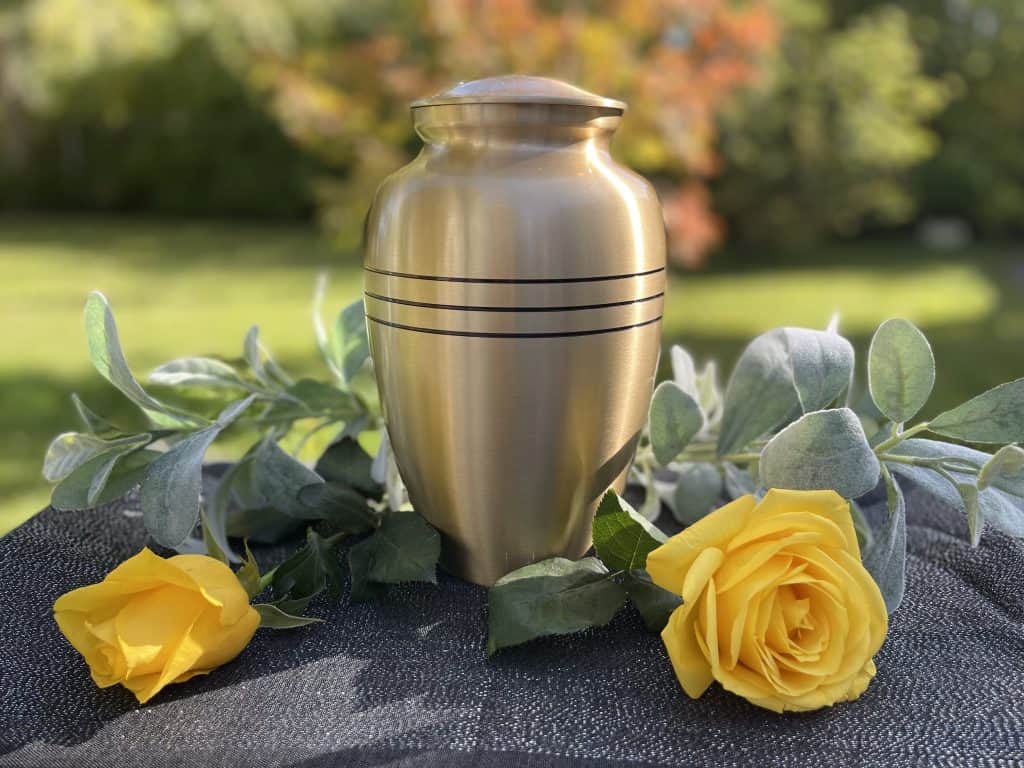
A “no-cost” cremation is a term used to refer to a free cremation offered with a whole-body donation. Also referred to as an anatomical gift, once the donation is completed at the Medical or Research Institution, the remains are cremated free of charge and returned to the next of kin.
You can read more on our Body Donation page.
If the deceased did not have a funeral plan or life insurance, what help is there to pay for funeral expenses?
Families in Pennsylvania seeking assistance with funeral expenses can explore some of the options below. Eligibility requirements will differ between agencies and organizations.
Department of Human Services (DHS) – Any financial assistance with burial or cremation services is primarily managed through the DHS in collaboration with local County Assistance Offices (CAOs). Eligibility for such aid is determined by the CAOs, and the specific programs and support available can vary by county. To explore available burial assistance programs in your county, you can contact your local CAO directly. Click here for a directory of CAOs in Pennsylvania. A funeral home must be registered with the DHS to receive payment.
Victims Compensation Assistance Program (VCAP)—If the deceased was a victim of a crime, VCAP may reimburse up to $6,500 for funeral and burial expenses. Applicants need to provide an itemized funeral contract and proof of payment. Phone (800) 233-2339 to learn more.
PA 211 – PA 211 is a statewide resource that connects individuals to local assistance programs, including burial and cremation expenses. You can dial 211 or text your zip code to 898-211 to speak with a resource specialist or visit their website at United Way Pennsylvania.
Local Charities and Nonprofits—PA charitable organizations may offer some assistance with funeral costs. Findhelp.org is a resource for organizations in Pennsylvania that may help with cremation costs.
Are there green cremation alternatives in Pennsylvania?

There is no active legislation governing water cremation or aquamation in Pennsylvania yet. We do not know of any funeral homes offering it at this time. It is still a ‘niche’ green cremation alternative and is only available in a few states.
However, consumer demand for greener funeral alternatives and climate change agendas may lead to future growth and demand for this service.
Visit our Guide to Aquamation or Water Cremation to learn more.
What are the options for scattering cremated remains in Pennsylvania?
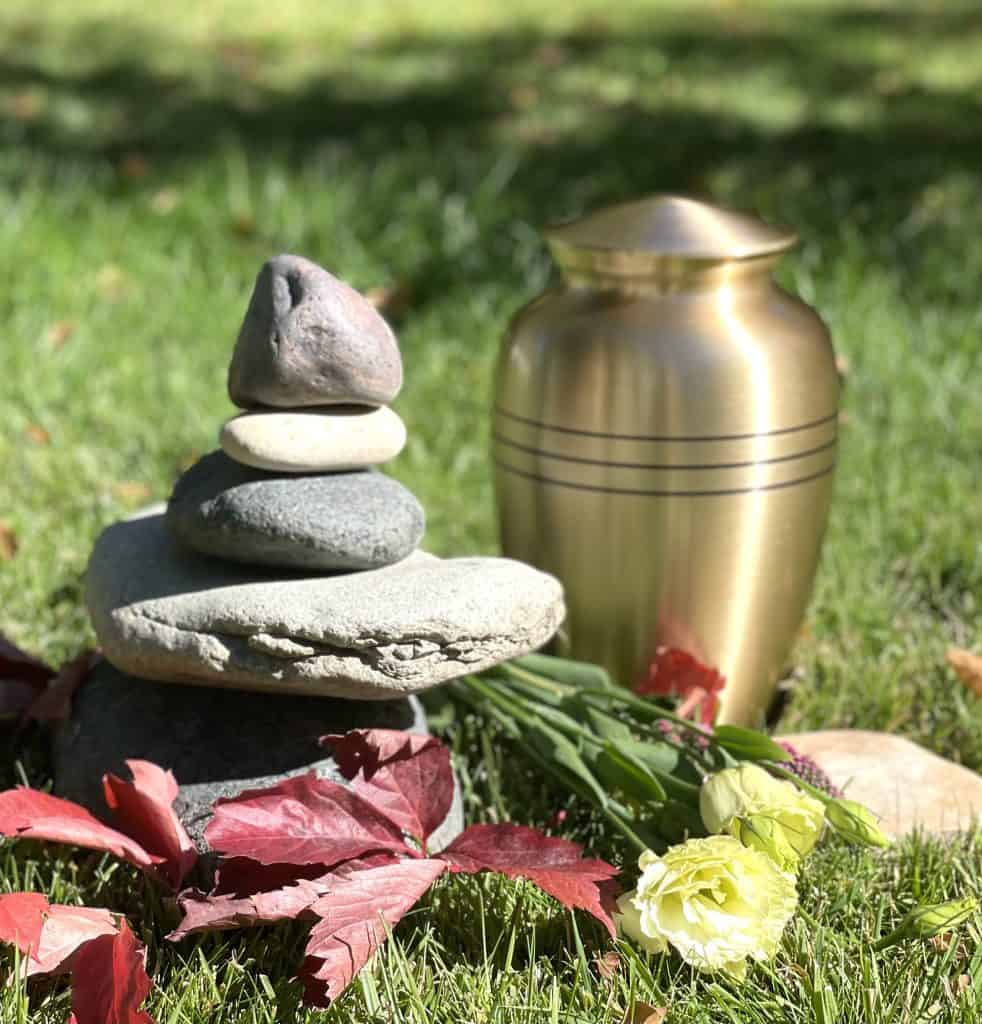
As more families opt for cremation, there is an increased demand for ash-scattering memorial tributes. Some cemeteries offer ash-scattering memorial gardens, or you can scatter on private land, scenic rural parkland, or a special location for the deceased.
Read the section on Pennsylvania Funeral Planning to learn more about the laws for scattering ashes.
You can also check out our more detailed guides to arranging a cremation service in Philadelphia and Pittsburgh.
* Funeralocity Price Check 2025

